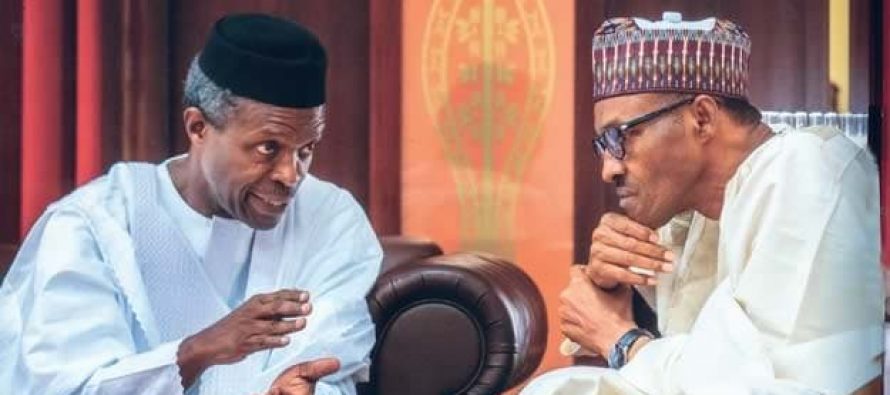…Says NASS members sees public funds as their ‘share of national cake’
The Presidential Advisory Committee Against Corruption, PACAC, Prof. Itse Sagay (SAN), on Sunday, blasted the National Assembly for daring to combine their roles as legislators with that of the executive.
Sagay queried the power of the National Assembly to insert projects into the budget.
TheNewsGuru.com reports that the acting President, Prof. Yemi Osinbajo, had, while signing the 2017 Budget into law last week, queried some “alterations” in the budget by the National Assembly.
He said such alterations would affect the plans of the executive to execute the projects as designed from the beginning.
However, Senate President Bukola Saraki and Speaker of the House of Representatives, Yakubu Dogara, had, in turn, rejected Osinbajo’s position, stating that the legislative arm of government had the powers to alter the budget.
Sagay, however, argued that the National Assembly had no power to introduce any project into the budget.
Speaking in Abuja at a programme organised by the National Association of Seadogs (the Pyrates Confraternity), the PACAC chairman said the legislative arm of government should not cross its bounds.
Sagay stated, “I am amused that the President of the Senate and the Speaker of the House are saying that the acting President had no right to comment on this matter. They said they have all the powers.
“The National Assembly has no power to create projects; it approves budgets. It is the government, the executive, that takes proposals for projects but this National Assembly does not get the message; it wants to be both legislature and executive at the same time.”
He alleged that the National Assembly was largely to blame for the ineffectiveness of past budgets because the members placed their selfish interests ahead of the nation’s interest.
The PACAC chairman added, “Even CNN reports that there are more private jets in Nigeria than commercial aircraft. The truth is that the overwhelming number of Nigerian elite see any funds voted or appropriated for any project as their share of the national cake.
“The National Assembly itself sees the Nigerian national budget as its personal budget, its money to tinker with at will and then to leave something to the rest of us.
“It is no surprise that Nigeria’s development remains stunted and misery and poverty remain overwhelming.”
The House, however, insisted that it stood by its earlier position that the power of appropriation resided with the National Assembly.
It also reminded Sagay that the acting President signed the budget into law, knowing that there were new projects inserted.
The Chairman, House Committee on Media and Public Affairs, Mr. Abdulrazak Namdas, told newsmen that the comments coming from the executive on the budget were “unnecessary.”
Namdas stated, “We gave our position on this matter already and keep repeating it. The power of the purse, in a presidential democracy, resides with the legislature and Nigeria will not be different.
“The acting President signed this same budget into law after studying it for several days. He knew there were additional projects and he signed. We have a law in place. Is it after the law has come into effect that they turn around to question the powers of the National Assembly?”
However, Namdas advised the executive to approach the judiciary for the interpretation of the 1999 Constitution if it was in doubt over any of its provisions.
“They are the ones asking questions. Let them go to court,” he added.
